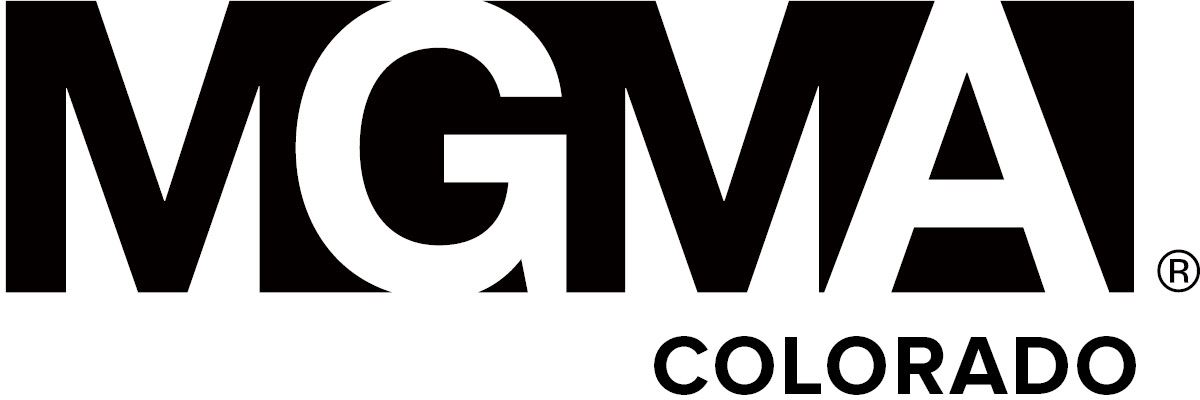Showcase your expertise by becoming a Certified Medical Practice Executive.
The American College of Medical Practice Executives (ACMPE), the certification and fellowship authority of MGMA, has been certifying medical practice executives for more than 60 years.
The only board certification of its kind, ACMPE’s Certified Medical Practice Executive (CMPE) credential is recognized as the standard in medical practice management — a benchmark that can single you out and put you in full view of top physicians and executives throughout the industry.
Ready to raise your profile? Apply for certification today or discover more about the path to your CMPE credential below.
The ACMPE Certification Pathway

To apply for board certification and work toward obtaining the CMPE credential, you must:
· Be a current MGMA member on a National level.
· Pay a one-time $250 application fee.
· Submit your completed application form, along with documentation of two years of healthcare management experience, including at least six months in a supervisory role. NOTE: Starting January 1, 2019, applicants will need a bachelor’s degree or 120 college credit hours (in addition to the current requirements) to apply.
Once you have fulfilled the qualifications and MGMA has verified your professional experience, you will be notified of your acceptance.
Step Two: Assess & Build Knowledge
After program acceptance, you will need to fulfill three requirements to earn your CMPE credential. These requirements can be completed in the order that works for you:
· Pass a multiple choice exam - This 175-item, multiple-choice exam assesses your on-the-job knowledge of the broad scope of group practice management principles and practices as described in the six domains of the Body of Knowledge for Medical Practice Management.
· Pass a scenario-based exam - This exam assesses in-depth knowledge of medical practice management principles, problem-solving and decision-making skills a candidate would need to handle and resolve real-world medical practice issues.
· Earn 50 hours of continuing education (CE) - You can start earning CE 30 days prior to your nominee acceptance date through a variety of qualifying activities. CE credit can also be earned during your exam preparation and after passing the exams.
For more information about the exams, applicable fees and upcoming exam registration dates, visit our ACMPE examination page.
Step Three: Maintain Your Credential
The Certification Commission and the MGMA Board vote monthly to confer and award the CMPE designation to individuals who have completed the nominee requirements. After the vote is final, staff will send official notification of your advancement. Once certified, you will need to:
· Submit 50 CE hours every three years
· Remain an MGMA member
· Consider ACMPE Fellowship (Optional) - Once you’re board certified, you’ll be eligible to join an influential group of exceptional practice leaders through ACMPE Fellowship, the highest level of distinction you can earn in medical practice management.
Take the next step in your career.
Start your board certification journey today.
FellowshipFellowship is your next career challenge and is the highest level of distinction you can earn in the medical practice management profession. Join others who are dedicated to making a difference and creating best practices in the healthcare industry. Share your expertise and make your mark in healthcare management. To apply to the Fellowship program and work toward obtaining the FACMPE credential, you need to:
Once MGMA receives and verifies your application fee and form, they will notify you of your acceptance into the program! Click here to access the application. |
Inside the Domains:
|
Congratulations to our newest Colorado Fellows! Pictured from left to right at the 2011 award presentation: Julie Kjack, John Milewski, Jennifer Souders, Janet McIntyre, and Brenda Lambert |
Business operations in a medical practice includes the following:
- Develop, implement and monitor business operation plans.
- Develop, implement and oversee systems for the purchase of materials and equipment.
- Manage facilities planning and maintenance activities to meet the organization’s current and future needs.
- Manage discernment process for identification and utilization of outsourced expertise and business partners.
- Develop and implement a marketing and communication plan.
Financial Management
Financial management includes the following:
- Develop and implement the organization’s budget to achieve organizational objectives.
- Establish internal controls for cash management.
- Implement and maintain a process for external financial audits.
- Develop and implement revenue cycle management and accounts receivable management.
- Analyze and monitor financial performance and report financial results to stakeholders.
- Direct the payroll process.
- Establish and maintain the organization’s banking, investment and other financial relationships.
- Develop relationships with individual insurance carriers to optimize contract negotiations and maintenance of existing contracts.
Human Resource Management
Human Resource Management in a medical practice includes the following:
- Coordinate the recruitment and orientation process of clinical and nonclinical staff.
- Manage the retention of clinical and nonclinical staff.
- Develop and monitor an effective staffing strategy.
- Develop, implement and evaluate performance management programs for clinical and nonclinical staff.
- Develop and implement staff compensation and benefit plans.
- Provide systems, processes and structure for administrative and clinical training for medical providers, employees and students.
- Establish systems and processes for awareness, education and compliance with employment laws and regulatory standards.
- Provide personal commitment to enhance knowledge, skills and abilities in health care administration.
Information Management
Information Management in a medical practice includes the following:
- Develop and maintain appropriate internal communication pathways for clinical and nonclinical staff.
- Develop a technology plan that establishes the criteria for selection and implementation of information technology, including computer systems, Internet strategies and telecommunications.
- Plan and design a technology security process to protect patient and practice data systems.
- Manage medical information systems including medical records, medication administration and health care related document storage.
- Develop and implement processes to comply with mandated reports of specified patient issues to regulatory agencies.
Organizational Governance
Organizational Governance in a medical practice includes the following:
- Facilitate the establishment and monitoring of the appropriate corporate legal structure for the organization.
- Facilitate organizational governance structure and maintain proper corporate record-keeping of strategic decisions.
- Lead the integration of the corporate mission statement into all aspects of the organization’s culture.
- Lead development of the organization’s strategic plan and its implementation.
- Establish, communicate, implement and monitor production and compensation standards for physician and mid-level
- professional staff.
- Implement and/or support organization leadership management of clinical staff conduct and performance expectations or
- programs.
- Foster the growth and development of physician leaders as knowledgeable, participative stakeholders.
- Encourage and lead participation in advocacy endeavors at local, state and national levels.
Patient Care Systems
Patient Care Systems in a medical practice includes the following:
- Establish and monitor business processes to ensure effective and efficient clinical operations.
- Provide relevant and accurate resources to enhance patients' knowledge, understanding and participation in their medical care.
- Develop and implement a referral management process.
- Design efficient patient flow patterns to maximize physician schedules.
- Manage front office operations to maximize patient satisfaction, collection of payments and customer service efforts.
- Implement a plan to control pharmaceutical supplies.
Quality Management
Quality Management in a medical practice includes the following:
- Design and implement a quality management system that leads to the improvement of health care delivery and ensures patient safety.
- Monitor the peer review process for clinical staff.
- Develop and oversee patient satisfaction and customer service programs.
- Identify, develop and maintain benchmarks for establishing practice performance standards.
- Create internal processes and systems to participate in pay-for-performance programs to enhance health care quality.
- Develop and monitor a program for staff, business and equipment credentialing and licensure.
Risk Management
Risk Management in a medical practice includes the following:
- Develop and implement a risk management plan to ensure a safe environment for patients, staff and visitors.
- Develop and implement policies and procedures to manage the impact of adverse legal events.
- Establish a plan for disaster response and recovery.
- Develop and implement a compliance program for federal and state laws and regulations.
Colorado MGMA is proud of the following members that have received their Fellowship in the ACMPE.
Dale Brinkman, FACMPE
Michael Chisholm, FACMPE - "A Planning Framework for Independent Medical Groups That Are Evaluating Hospital Integration Opportunities"
Susan Donahue, FACMPE
Mike Fisher, FACMPE - "The Canadian National Primary Care Awareness Strategy: What can we learn?"
Lance Goudzwaard, FACMPE - "Firing the Founding Partner... A Look Back", "Point of Service Collections", "Married Partners... When Divorce Comes Into Play"
Mary Jo Heins, FACMPE - "Maintaining Primary Care Revenue Streams from the River of High Deductible Health Plans"
Julie Kjack, FACMPE
Jan Krause, FACMPE - "Using Benchmarking to Create a Practice Staff Compensation Plan"
Timothy Krause, FACMPE - "Meaningful Financial Statements and Reports for the Medical Practice"
Brenda Lambert, FACMPE
Judith Lazar, FACMPE
Janet McIntyre, FACMPE - "Strategic Planning in the Medical Practice - From Good Idea to Implementation"
John Milewski, FACMPE
Jennifer Souders, FACMPE
Gena Weir, FACMPE
Rebekah Phillips, FACMPE
Eric Speer, FACMPE

